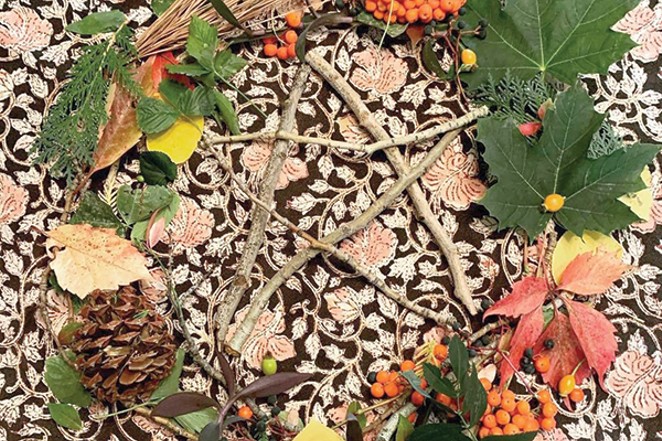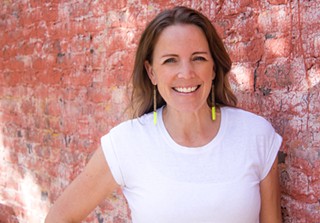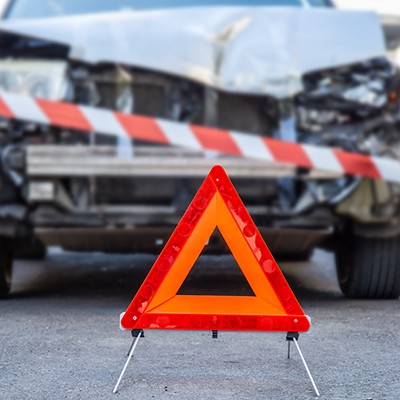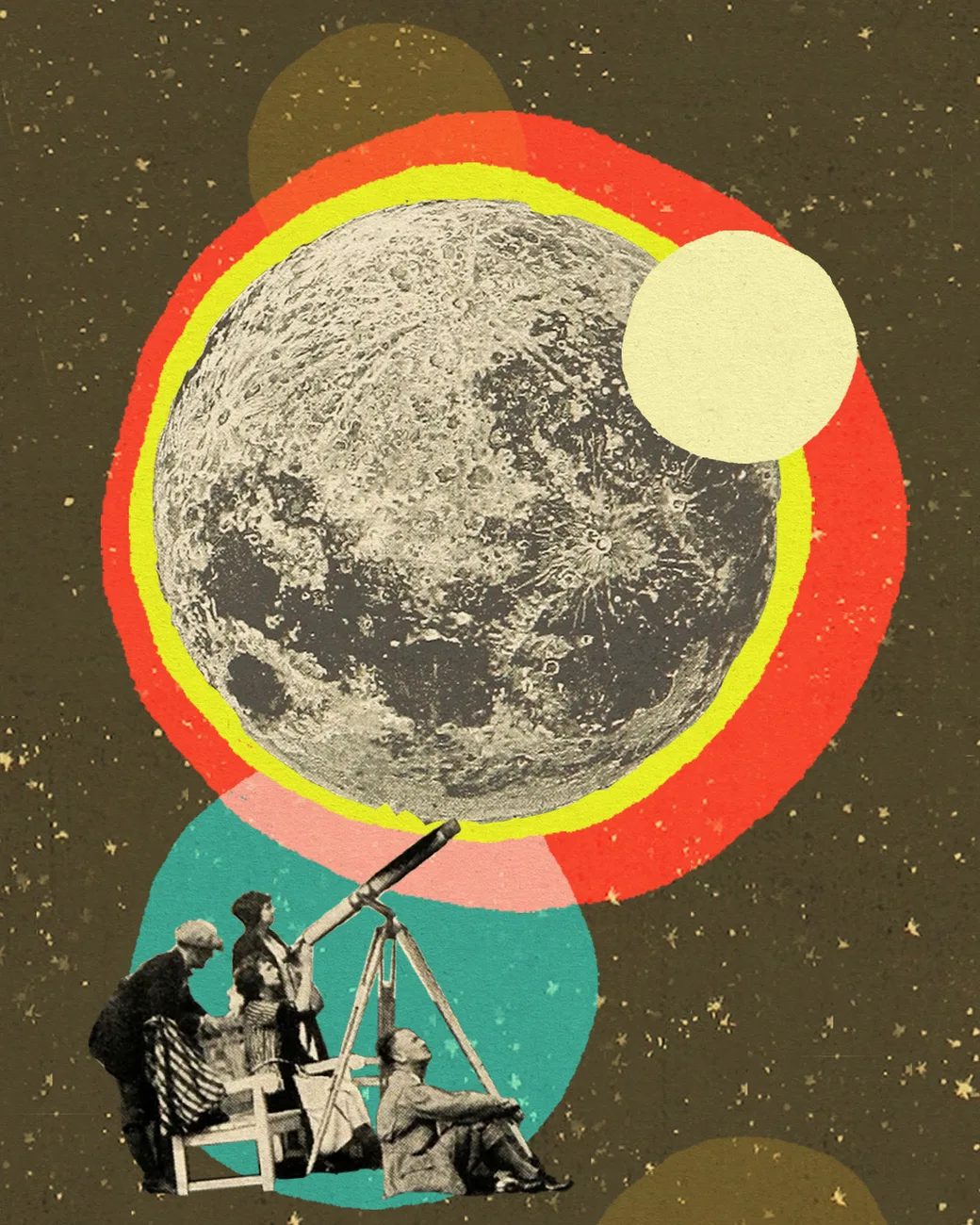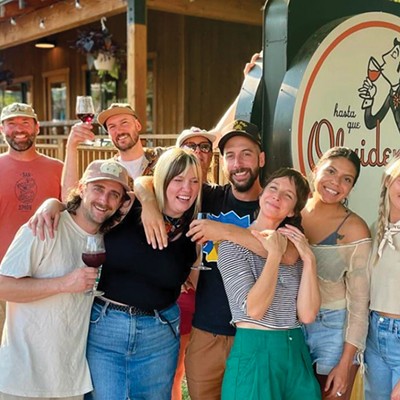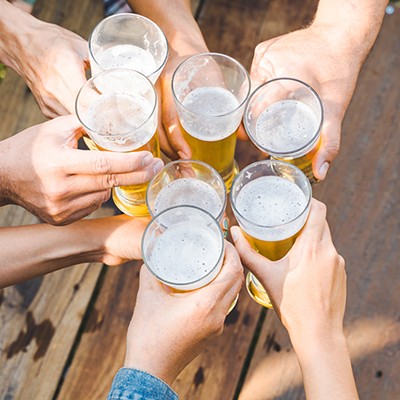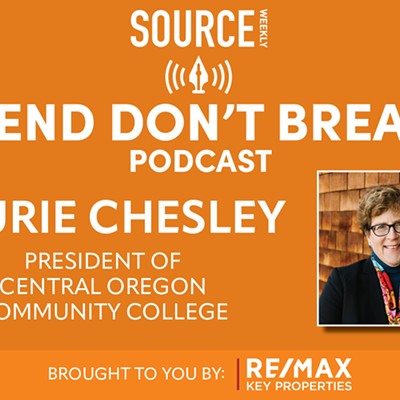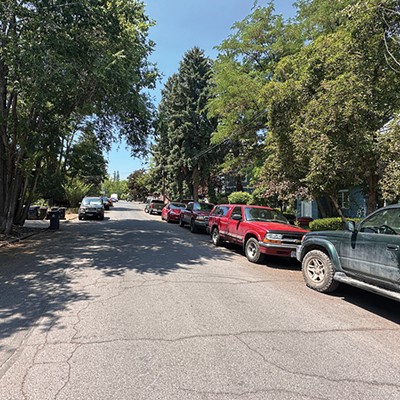Participation at churches has seen a steady decline since the mid 1990s, going from roughly 70% of the U.S. population attending a church, synagogue or mosque in the late '90s to around 47% of people reporting attendance as of 2021, according to Gallup polling data.
Meanwhile, another form of spiritual practice is on the rise: witchcraft. More than a trope involving black cats and cauldrons, people ascribing to this form of spirituality might focus on things like the notion of karma, the powers of the natural world or other pre-Christian belief systems. Between 2001 and 2008, the American Religious Identification Survey reported the number of Wiccans increasing from 134,000 to 340,000, and the number of Pagans increasing from 140,000 to 340,000. A study on religion by the Pew Research Center done in 2014 found that around 1 million people, or about .3% of the U.S. population, identified as Wiccan or Pagan—and that's not even counting the number of people, like Central Oregon local Kiki Castro, who identify as "witches" while not ascribing to one particular ideology.
Castro formed the Witches of Central Oregon Facebook group several years ago. In honor of Halloween—which gets its roots from Pagan and other indigenous spiritual practices, I chatted with Castro about being a self-described witch in the 21st Century.
Source Weekly: Describe your witchcraft practice.
Kiki Castro: I feel like I use it when I need to—I'm not doing spells every day or anything like that, but I use it often. It could be using my tarot cards, it could be praying to a deity, and it can be doing spells or making sigils, all that stuff that people think of when they think of witchcraft. It just depends on what it is and what I need and then I kind of decide from there.
I'm very eclectic—I use a lot of different types of things. I wouldn't say that I follow just one path.
SW: What was your introduction into this practice?
KC: I know this sounds funny, but when I was a kid I used to collect rocks, like most kids do. I would take them in my room and I would set them up in different patterns, and I would sit and concentrate on them. It's just something I've been doing for as long as I can remember. Even though I didn't know what I was doing or why I was doing it, come to find out later, I have family in Central America who are also witches and practice. So it kind of came natural.
SW: How did it evolve from the rocks in your bedroom to something more?
KC: When I got older, after my 20s, it felt like it just really called to me and I started to take it a little more serious, and it's something that is almost like self-care, at this point. It's time when I can go and focus my intentions and whatever I want to manifest. Sometimes my kids join me—my daughters—and they enjoy it as well, and so sometimes it's something we do together, but it's just healing, I guess, in a way.
SW: Can you give an example of something you might do when you need a little healing boost for yourself?
KC: One of my kiddos and I felt like we needed some protection, so we conjured up a little protection spell and made a sigil and made a protection candle—stuff like that.
SW: Do you have teachers that have helped you along the way?
KC: I'd like to say that I like to use the internet as a tool, but there's just so much information out there that I've come to the conclusion that there's not one set way to do something. I have many books—you can take a little bit from each book, or I can just say, I'm going to go and make up my own thing, and I feel like that's even more powerful, to create your own whatever it is that you're doing.
SW: You created the Central Oregon Witches Facebook group. Let's talk about the formation of that group.
KC: It's probably been at least two or three years now. It was just kind of a void that needed filled. I wasn't ever really big on Facebook but what I do like Facebook for is being able to create these communities, and there wasn't one, so I made it and I was like, well, let's see what happens.
For a while there was maybe only 500 [members] but I would say in the last year we've gotten that extra 500. We're almost at 1,000 now.
SW: What might someone find in the group? I imagine there are lots of people practicing a lot of different ways.
KC: Yeah—and it's all celebrated. One of my main things about the group is, there's no judgement, we're not shaming anyone. We're here to be uplifting. A lot of people are sharing, maybe something that they've practiced, or sometimes we will do moon circles, singing circles, drum circles. There are people who want to start covens. All sorts of stuff!
SW: What do events like this look like in real life?
KC: Some of the elder ladies that were there, they brought songs for us to sing, and a drum, and we all went around and shared things we wanted to manifest. We sipped on cider around a fire, and it was just really fun. It's nice to be around like-minded people who are positive and just want good things for each other.
SW: That makes me think about how some people have a perception around what witches are. What kind of misconceptions do you have to deal with?
KC: That we're evil, or that we wish bad things upon people—which neither are true. I think us witches know... it's the basic rule of karma, right? Whatever you put out to the universe, it's going to come back to you threefold. If you are spitting out some evil nasty, you'd better expect that to come back to you in a worse way.
SW: What does the time around Halloween or Samhain mean to you?
KC: It's All Hallow's Eve; the veil starts thinning. It's a great time to connect with people on the other side. It marks the change of the seasons.

